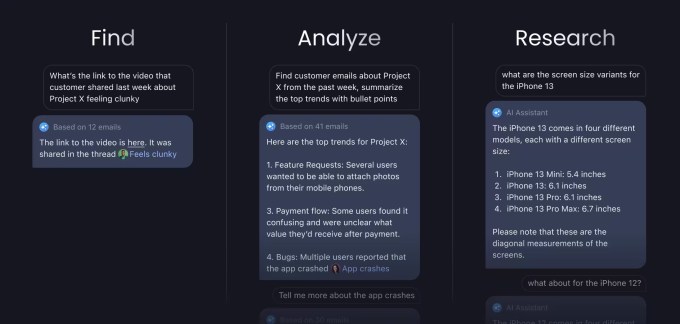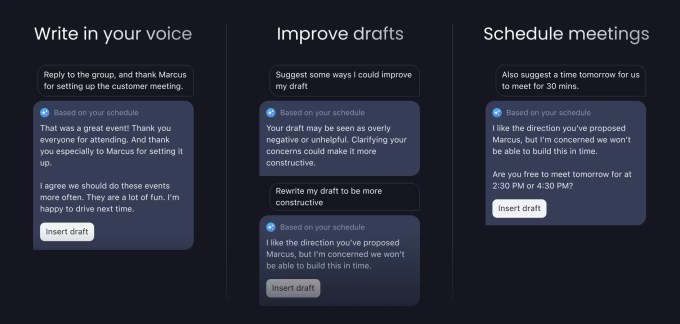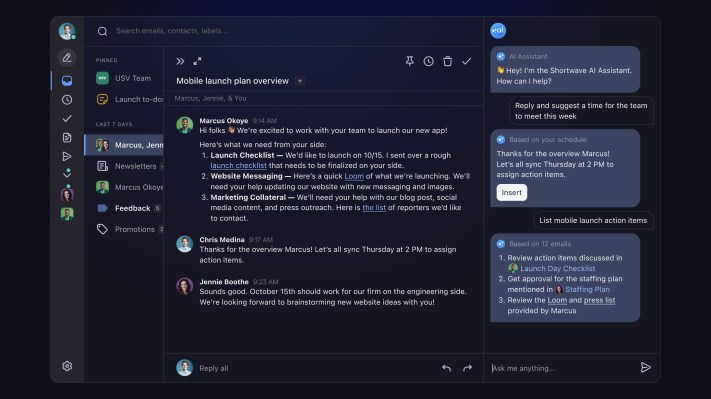Since large language models (LLMs) shot up in popularity, plenty of developers have built tools on top of OpenAI’s GPT or Anthropic’s Claude to help people draft emails in different tones and formats. Shortwave, an email client built by former Google employees, is launching an AI-powered assistant that lets you ask questions about your inbox.
One of the key features of the assistant is to let you find emails from your inbox — once you grant access to your email history — based on natural language queries. For example, you can ask things like “What was the link to the video that the client sent me talking about Project Cricket’s bugs?” or “What emails talked about SaaS startups in the last week?”

Image Credits: Shortwave
Shortwave’s AI assistant is available for all users to try today. They can get started by clicking the AI icon on the top right.
Because LLMs are good at formatting, you can also ask queries like “Summerize emails about Project Cricket from last week in bullet points.” Notably, Shortwave launched an email summarization feature in March.
The assistant will also help you with the usual AI-powered email features such as composing drafts in different formats, improving your writing, translating text in an email, summarizing a conversation, and making your email concise.
Since Shortwave’s assistant can have access to your calendar, you can ask it to schedule a meeting draft with proposed timings as well.

Image Credits: Shortwave
Andrew Lee, Shortwave’s CEO, told TechCrunch that the company is using a combination of a bunch of models for the assistant. It uses Instructor-xl and GPT 3.5 for search; Pinecone‘s vector database solution for long-term memory so the assistant has a large context window; MS Marco for re-ranking emails after retrieval from search; and GPT-4 for final user-facing output.
Shortwave, which has more than 20,000 active users, specified that it is not training these models on any user data.
The company is also using GPT-based models, so users can search for web-based knowledge such as price and screen sizes of the latest iPhones without leaving the app.
